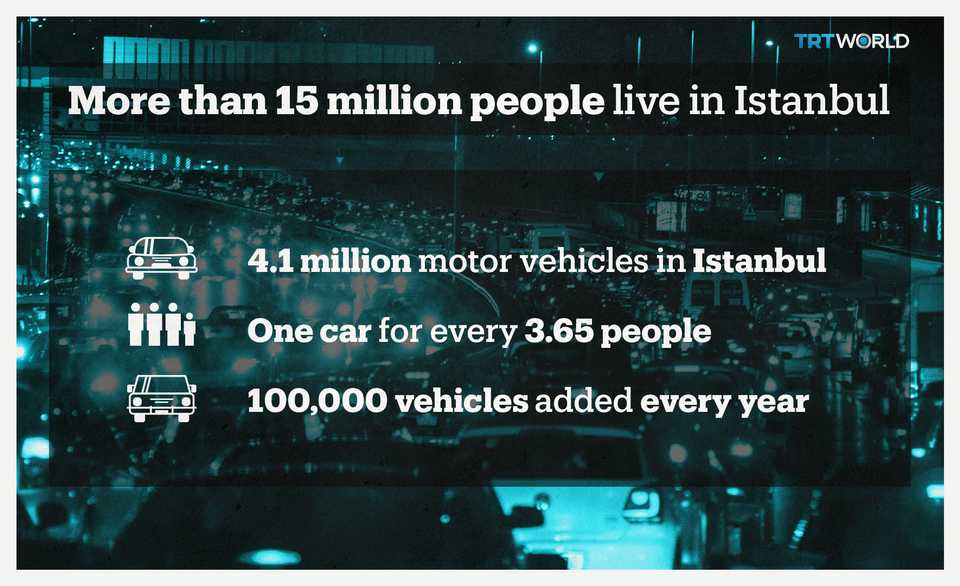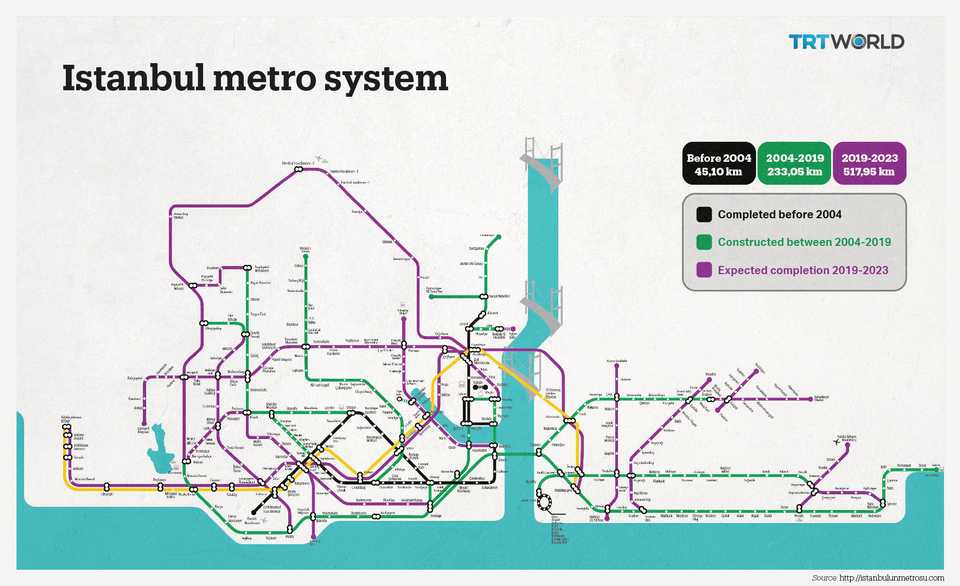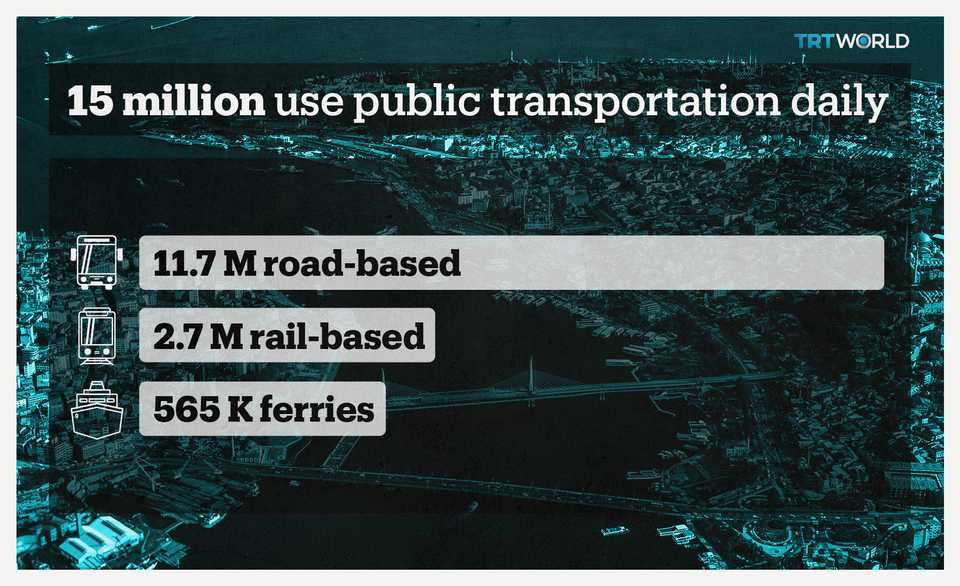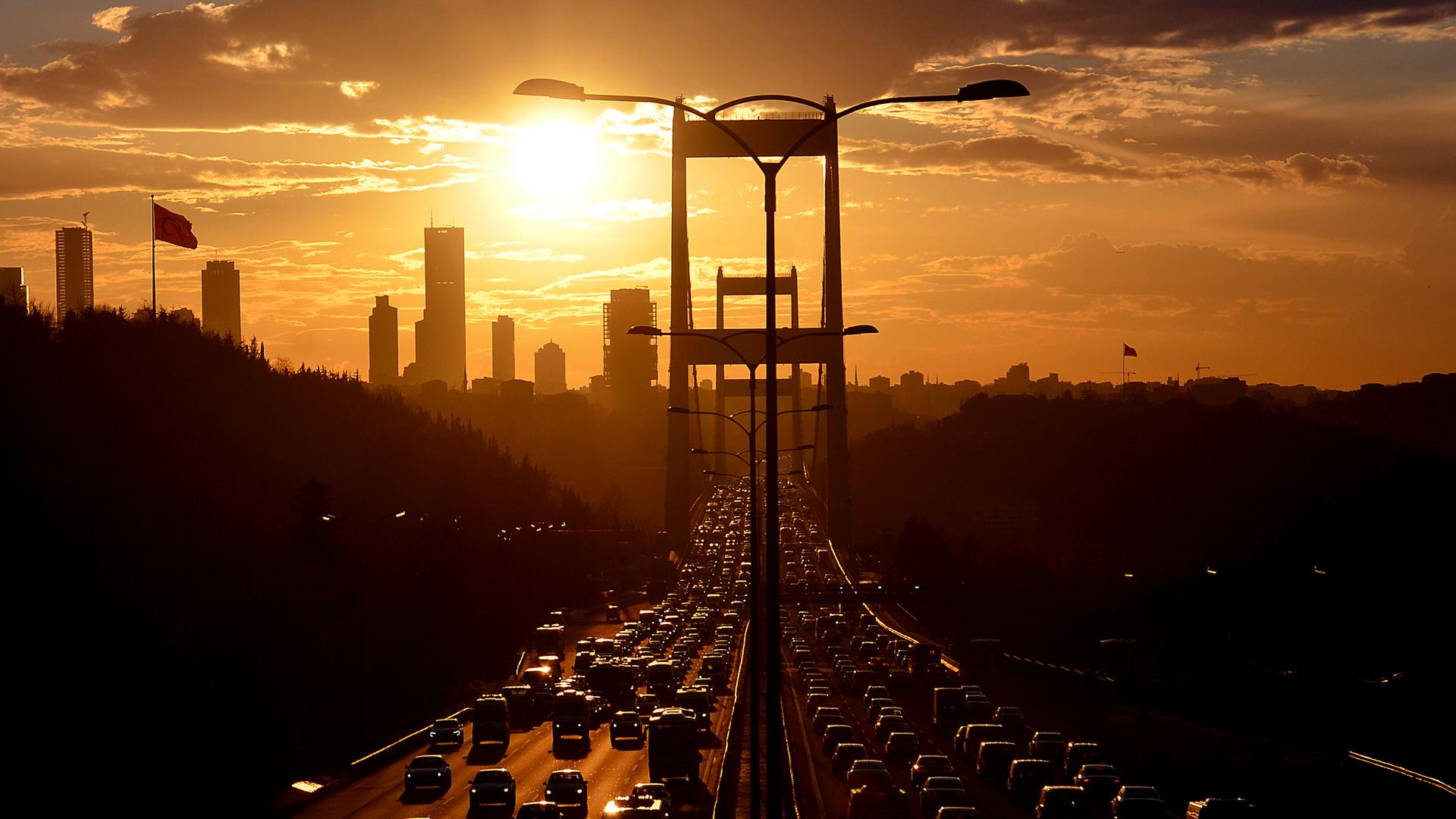Turkey will go to the polls for local elections on March 31 to elect city mayors, district municipality mayors, city council members, and mukhtars (neighbourhood or village heads).
Istanbul is the economic and cultural capital of the country and naturally the most significant city in the local elections. Winning Istanbul, where more than 15 million people live, is crucial. Approximately 20 percent of Turkey’s population lives in the city that bridges Asia and Europe.
What unites people in this city, arguably more than anything else? You guessed it, traffic.
According to the INRIX, a company that specialises in transportation analytics, Istanbul is the second most congested city in the world after Moscow. It’s not just INRIX, but also others that consistently rate Istanbul as one of the most congested cities on earth.
One candidate Binali Yildirim, of the People’s Alliance’s, a coalition that includes the governing AK Party, has made several promises from building alternative roads and increasing the capacity of public transportation.
Yildirim is a founding member of the AK Party and a prominent figure in Turkish political life. During his political career Yildirim served in various positions, including as minister of transportation and communication and prime minister. Yildirim was the last prime minister of the country preceding Turkey’s transition to a presidential system.
The Nation’s Alliance candidate Ekrem Imamoglu has also made several promises to end traffic congestion through expanding the city’s metro system with new lines.
Imamoglu is the current mayor of Istanbul’s Beylikduzu district. Before his current post, he served as the chairman of his family business, board member of Trabzonspor Football Club and mayor of the CHP party in Beylikduzu.
But solving Istanbul’s traffic issues will undoubtedly involve a few speed bumps on the way.
According to the Turkish Statistical Institute (TUIK), there are more than 4.1 million motor vehicles in Istanbul. That means nearly one car for every four people. Last year, the number of motor vehicles in Istanbul increased by nearly 100,000.

Just in January 2019, 23,664 vehicles were added traffic in Istanbul. If the increase continues at the same rate for the next ten years, then Istanbul will add another million cars to its roads every ten years – and if it stays at the rate of January this year, that number will drive further upwards.
Ali Osman Atahan, a professor at the department of civil engineering in Istanbul Technical University, told TRT World that congestion could be reduced and the flow of traffic can be improved, but it might not be the most comfortable solution for all commuters.
“For example, in high-occupancy lanes, if there are 3-4 people in the vehicle, there should be no toll fees, but the question is how would this be enforced.”
If public transport services are not being expanded, if the HOVs are not implemented in busy areas, the road capacity decreases and traffic becomes more and more problematic,” he added.
Atahan emphasises that carpooling will ease the burden.
“Some people don’t drive because of the traffic. If new roads are constructed, people will start to use their personal vehicles more. This would pave the way for congestion, more roads do not mean an end to congestion. Because there will be more demand.”
In some countries, driving into certain areas requires a fee, Atahan suggests this as one method to try and encourage people to use public transport and avoid fees.
As taller buildings with a higher capacity to house more people are raised all over the city, infrastructure gaps grow wider.
“Serious long-term investments are needed to change this situation,” he added.
New developments
The subway system of the Istanbul Metropolitan Municipality has come a long way since 2004.
In 2004, the total metro line length stretched through 45.10 km in Istanbul. With the opening of the metro line in 2018 on the Asian side of the city, between Uskudar and Cekmekoy, the total length of the metro system hit 170.05 km.

Just recently the Gebze-Halkali commuter train line was added to the metro system of Istanbul in March 2019 bringing the total length to 233 kilometres.
Some 1.7 million passengers are expected to use the 63 kilometre-long (39 miles) Gebze-Halkali line daily. The line has 43 stations and will take less than 70 minutes to travel the entire length of the line.
The 13.6 km Marmaray Tunnel commuter rail line, opened in 2013 at 60 meters below sea level, has shortened the journey between the Asian and European sides to just four minutes.
According to the municipality, the total length of the subway system in Istanbul is expected to reach 624.65 km with the ongoing construction of new metro lines.
According to İstanbul Electric Tram and Tunnel Operations (IETT), every day nearly 15 million people use public transportation in Istanbul.
At least 2.7 million of 15 million people are using rail systems that include metro and tramway. However, at least 11,7 million people use road-based public transportation like the bus, Metrobus, minibus or taxi.
Moreover, 565,000 people use the water, the Bosphorous primarily, for transportation (ferries, sea taxis etc.).

Atahan said: “15 years ago, E-5 one of the main roads in Istanbul had an incredible amount of traffic. Construction of the Metrobus provided much-needed relief. It became a lot easier to travel from one end of Istanbul to the other. But the demand is constantly rising; the Metrobus line was designed for a few hundred thousand people now, now the demand is five times that and this causes difficulties.”
The solution is to expand the Metrobus lines, according to Atahan. The only solution is increasing the capacity for public transport.
Atahan suggests shifting people out the centre of Istanbul and to the edges. But if more people move to central areas, the current public transportation infrastructure is inadequate.
“Almost every hour of the day there is traffic in Levent, which is a commercial hub and has a number of malls,” he said.
“The ongoing metro projects are encouraging people to not use their personal vehicles for travel and getting around” he added.
Istanbul’s infrastructure has come a very long way in terms of its transportation infrastructure and city boast’s of a high amount of public transportation options.
But as the election comes around the corner and congestion remains on the top of the agenda it is clear that the city grows faster than its ability to shuttle its inhabitants around.










Discussion about this post